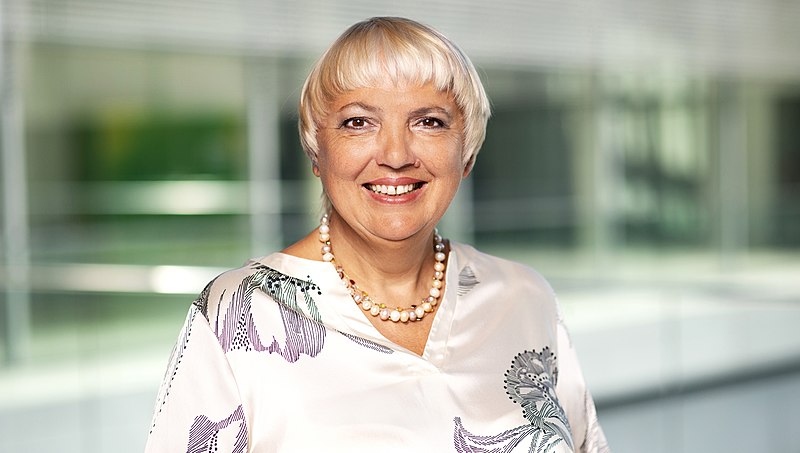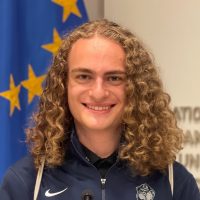
Bündnis 90/Die Grünen Bundestagsfraktion via Wikimedia Commons
AGI Profiles: Claudia Roth

Matthieu Liebman
Mr. Matthieu Liebman is a research intern at AICGS for the spring of 2022. His duties include conducting research for resident fellows and projects, managing databases, and helping to organize and document events at AICGS.
Mr. Liebman is currently pursuing a BA in German at Georgetown University, where he also plans to complete a certificate in European Studies. His research interests center on memory politics and the culture of remembrance in Germany and Europe.
Aside from his academic pursuits, Mr. Liebman enjoys learning new languages. In addition to German, he has studied Polish at Georgetown and is currently learning Swedish and Finnish. He also likes to travel and experience different cultures. In 2018, Mr. Liebman traveled to Germany as a recipient of the AATG/Pädagogischer Austauschdienst Study Trip Award.
Commissioner to the Federal Government for Culture and Media
In 2021, Claudia Roth was appointed Commissioner to the Federal Government for Culture and Media (Beauftragte der Bundesregierung für Kultur und Medien). She studied theater studies at Ludwig-Maximilian-Universität Munich and worked in theaters in North Rhine-Westphalia and as the manager of the rock band Ton Steine Scherben before entering politics. She has held a variety of positions in the Green Party. Before her election to the Bundestag in 1998, she was a member of the European Parliament for nine years. Prior to her appointment as Commissioner, she served as Vice President of the Bundestag. Roth has fought for human rights and against xenophobia during her career. She reports to Chancellor Scholz directly and oversees the nearly 400-person Office of the Federal Commissioner to the Federal Government for Culture and Media.
She succeeded the CDU’s Monika Grütters, who was the longest-serving culture commissioner in Europe. Under her predecessor, aid was distributed to institutions within the cultural sector that had been affected by the pandemic, such as theaters and museums. Roth intends to continue those programs meant to help revitalize the culture sector. She also wants to further fund cultural projects and institutions through the Federal Cultural Foundation, which aims to “[promote] art and culture within the scope of federal competence.” Roth supports the independent cultural sector and wants to enact protections for independent, freelance artists. The new government is aiming to reform the process regarding the restitution of Nazi-looted art, and the Green Party would like to enact laws enabling the return of such art. The Greens also want to promote the acknowledgement of colonial crimes, such as the plundering of art, which they say should be done through “close cooperation with the descendants and civil society initiatives of the former colonized and aggrieved worldwide.” In 2021, Germany agreed to return some artifacts that had been plundered during the colonial era to Nigeria. Roth will continue such restitution efforts, such as the return of the Benin bronzes, which is scheduled to take place in 2022. She also would like to expand the conversation on decolonization in German museums.
Roth and the Federal Ministry for Culture and the Media have made headlines for other reasons as well. She recently spoke in support of Documenta, a non-profit organization that focuses on the arts, after the organization was accused of anti-Semitism by Central Council of Jews in Germany after the art exhibition included a Palestinian art collective. There have also been efforts led by Roth’s Ministry in response to Russia’s invasion of Ukraine. In conjunction with the Foreign Office, Roth launched the Network for the Protection of Cultural Property in Ukraine. Through this initiative, Germany hopes to protect cultural artifacts and provide aid. Roth also criticized Russia’s recent move to prevent Deutsche Welle from broadcasting in Russia, calling it “unacceptable.” Deutsche Welle was deemed a “foreign agent” by Russia after Russian state television’s German-language broadcasting was banned in Germany. She said that Moscow was trying to compare an independent news organization with Russia’s state broadcasting network.








